70 Surprising Foods You Should Never Refrigerate
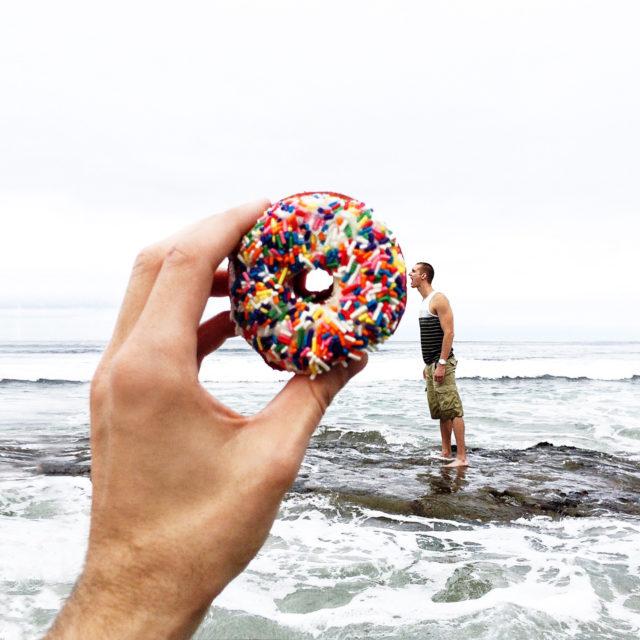

twenty20Now, here are some of the foods that you do not want to put into your refrigerator at all because it could really impact the quality and taste of the food, but also have the food go bad faster
1. Potatoes
Potatoes do not need to, and should not be, refrigerated. They need to ne kept in a cool environment, not one as cold as a refrigerator. Since potatoes also need to be kept in a dark, dry space, a cabinet is ideal. Keeping them in a cabinet will also help preserve the flavor that the refrigerator will destroy.
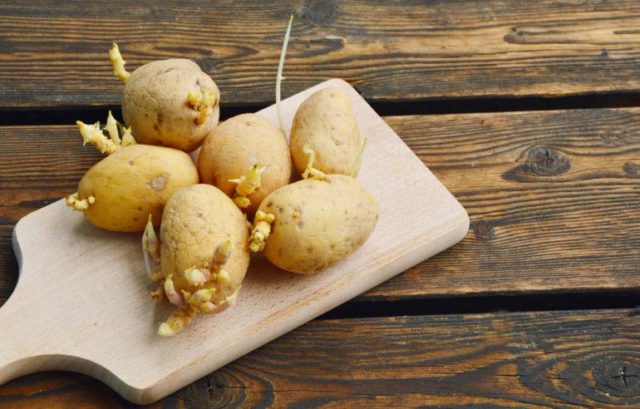 shutterstock
shutterstockWhen you keep your potatoes cold, there will be a breakdown of its starches. This can make your potatoes taste sweet or have a gritty texture to them. Refrigerating your potatoes could lead to a premature darkening of its skin. You would discover this when you cook the potatoes and notice a difference in their appearance.
2. Avocados
Avocados that are not yet ripe should never be kept cold. The temperatures in a refrigerator suppress their ability to ripen. This will prevent you from being able to use them as you intended to. Keeping them at room temperature will help preserve them until you are ready to use them.
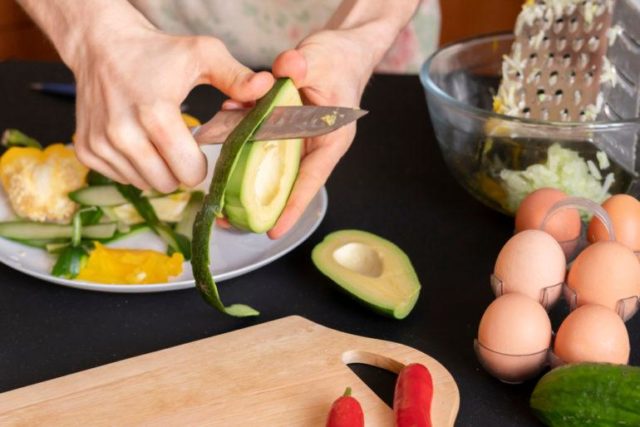 shutterstock
shutterstockWhen an avocado is ripe it can go in your refrigerator. However, you only want to put them there if you have plans to use them at a later time. Otherwise, keeping them in a refrigerator will ultimately make them food you can’t use.
3. Coffee Beans
Buying coffee beans at the grocery store is a great way to keep yourself caffeinated daily. Just avoid making the mistake of storing those coffee beans in the refrigerator. You want your coffee beans to be fresh. This means keeping them in a place that is cool and dry. Instead of refrigerating them, coffee beans should ideally be stored in a tightly sealed container.
 shutterstock
shutterstockRoom temperature is the best temperature for them to thrive in. They also need to be kept away from any source of light. Coffee beans are best kept in a space that’s dark.
4. Tomatoes
Tomatoes must always be kept away from the refrigerator. The tangy and rich flavor of tomatoes can be ruined with exposure to cold air. Any cold temperatures wrinkle the skin of a tomato. It can also deteriorate the internal membranes. This leads to a decline in its quality.
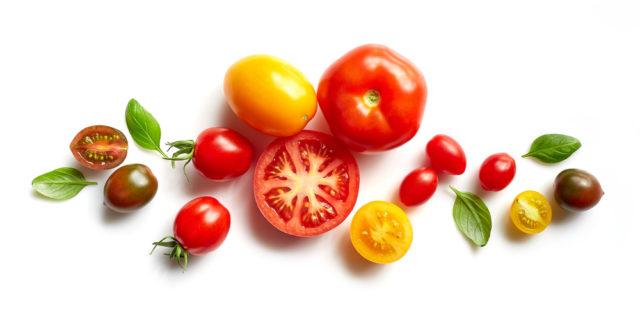 shutterstock
shutterstockMushiness and a lack of flavor are side effects of keeping tomatoes in the refrigerator. Keep them on a counter in your kitchen and you will find that they retain their freshness. Refrigeration will prevent them from ripening when you want them to. Unripened tomatoes aren’t a great food choice.
5. Onions
Fresh, unused onions should also never be put in the refrigerator. Too much exposure to cold air can make your onions soft, moldy and undesirable. The National Onion Association states that unless an onion is peeled, you should avoid refrigerating it. They also advise against placing unpeeled onions in a plastic bag.
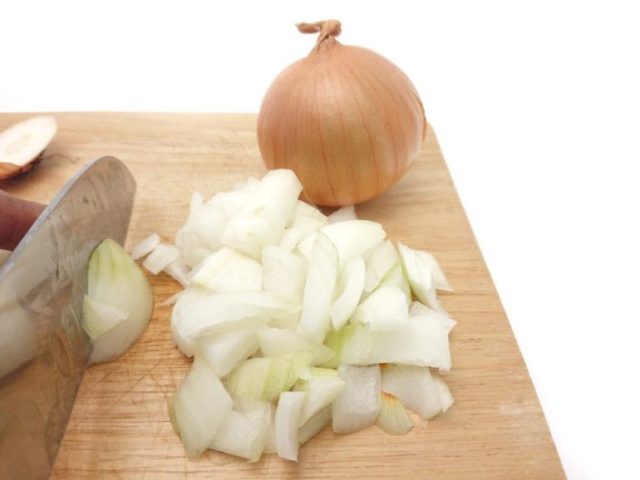 shutterstock
shutterstockThe ideal place to store them, unused, is somewhere they are exposed to room temperature. This can mean keeping them in a pantry. Even keeping them in a bowl on a shelf or table is better. Don’t let your unused onions go to waste.
6. Bananas
One of the foods that spoils the quickest in the refrigerator is bananas. Grown in areas where it is naturally hot, bananas don’t handle cold air very well. Not only that, but they can even lose their nutrients. The health benefits of bananas greatly deteriorate when kept cold.
 shutterstock
shutterstockRoom temperature is ideal for bananas to maintain their quality. Refrigeration makes it harder for this food to ripen. It can also cause damage to a banana’s cells. Exposure to cold air will also make your bananas dark and moist, affecting their flavor and texture in a negative way.
7. Chocolate
Though your fist instinct might be to store chocolate bars in the refrigerator, don’t do it. Exposing chocolate to cold air can ultimately suppress its flavor. This is something referred to as sugar bloom. Keeping a chocolate bar refrigerated and then removing it changes the temperature of the air it is exposed to.
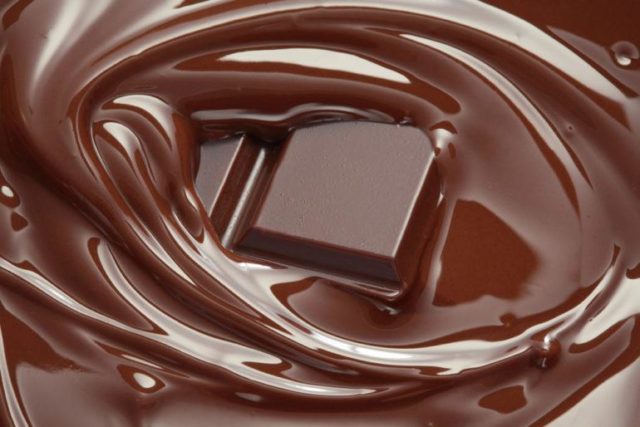 shutterstock
shutterstockThis sudden change in temperature can damage chocolate. You may notice that an undesirable coating forms on your chocolate bar after it has been removed from the refrigerator.
8. Honey
There is a reason why honey has been around for centuries. Its natural preservatives make refrigeration unnecessary. Kept in the refrigerator, you will find that the sugar in the honey crystallizes rapidly. When this happens, honey becomes tough. It takes on a consistency similar to dough. Toughened up honey is difficult to scoop.
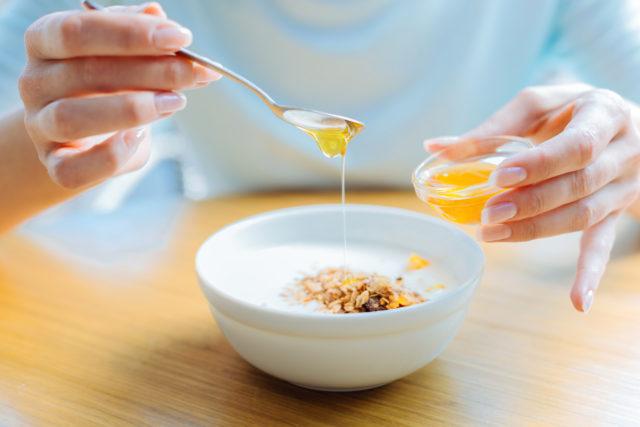 shutterstock
shutterstockThis is not the ideal condition for it. Refrigerating honey prevents you from using it the way it needs to be used.
9. Melons
If you want to enjoy fresh melons, keep them out of the refrigerator. Research done on melons has proven room temperature is better for them. The levels of antioxidants in your melons are important.
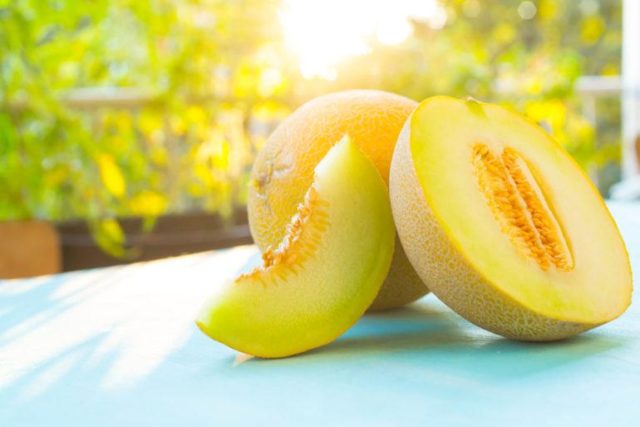 shutterstock
shutterstockThe best way to keep the levels where they should be is to expose whole melons to room temperature only. They should never be kept in the refrigerator until you have sliced them open. Until then, you are better off keeping them in a place that is dark and cool. This makes pantries and closets the best choices.
10. Eggplant
Eggplant is one of the many foods that should never be kept in the refrigerator. Like most vegetables, eggplants can be easily manipulated by temperature. Keeping them in the refrigerator for too long will do more harm than good. This vegetable is ideally stored in temperatures above 50 degrees Fahrenheit (ca. 10 °C).
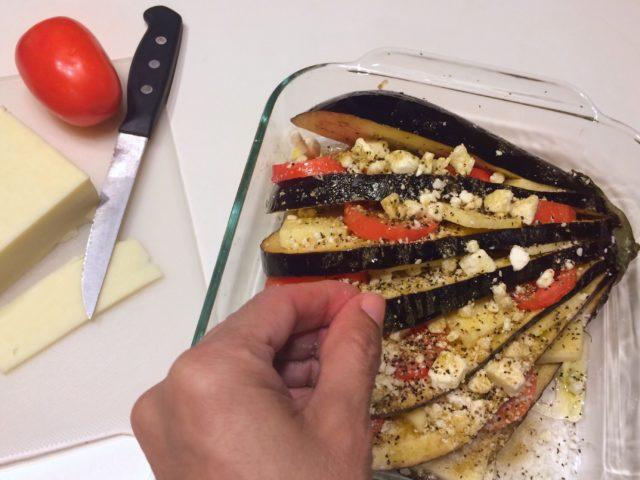 twenty20
twenty20Keeping them in temperatures below that change the flavor of the eggplant. It also changes the vegetable’s texture as well. Room temperature is the best temperature to expose eggplants to. Another reason to keep them out of the refrigerator is that they shouldn’t be kept near fruits or other vegetables.
11. Garlic
It is best to keep garlic away from your refrigerator. Garlic does not belong in a cold environment. Keeping it cold usually results in it becoming moldy and rubbery. In some cases, garlic will sprout if kept in the refrigerator for too long. To thrive, it needs to always be kept in a place where the air can circulate.
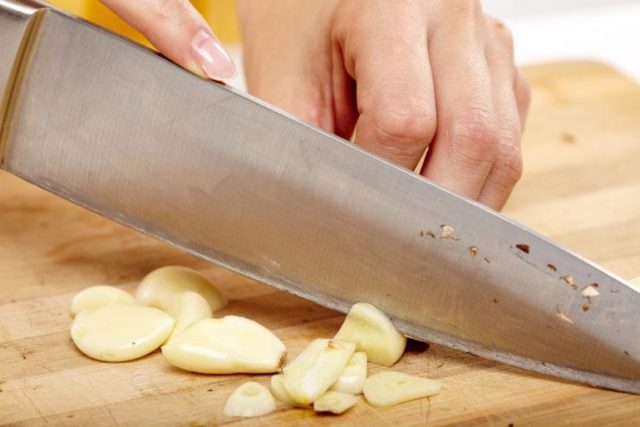 shutterstock
shutterstockWhen you keep your garlic on a counter it can last for more than one month. It is best to keep it in a basket. This helps you keep it in one place long enough to use it.
12. Peanut Butter
Though you may be tempted to put an open jar of peanut butter in the refrigerator, resist the urge. Unless it is all-natural, peanut butter is actually better kept away from cold temperatures. Keeping it cold will only result in it hardening and drying out. It is especially important that creamy peanut butter is kept out of the refrigerator.
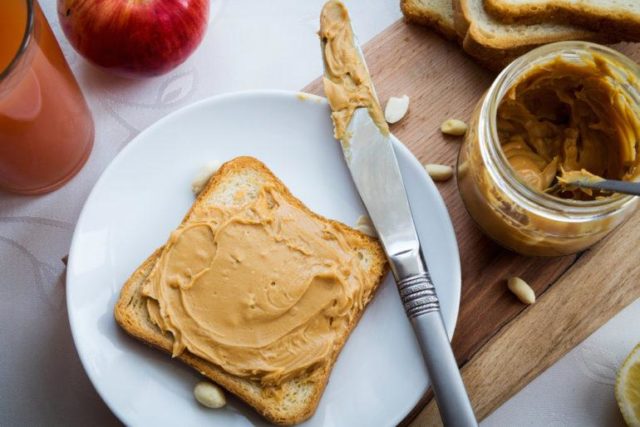 shutterstock
shutterstockIdeally, it belongs in a dry place where it is not exposed to light. This is why keeping it in the refrigerator is not beneficial in any way.
13. Ketchup
Not surprisingly, ketchup should also be kept out of the cold. This makes sense since ketchup contains tomatoes, which also shouldn’t be refrigerated. You may be in the habit of keeping ketchup in the refrigerator after you open it. However, you are exposing it to cold air for no good reason. Most restaurants keep ketchup bottles on the tables all day. This is because they do not need to be refrigerated.
 shutterstock
shutterstockAnother reason to keep them out of the refrigerator is that you often put ketchup on hot food. When you pour cold ketchup on hot french fries, the fries will get colder faster. For this reason alone, refrigerating ketchup is a bad idea.
14. Olive Oils
There is no good reason to refrigerate olive oil. Exposing it to cold air will damage it. The oil will become harder and resemble the texture of butter. This is not something that you want to deal with. The Journal of Food Science reported on a study of olive oil. The study showed that the shelf life of oils is only so long.
 shutterstock
shutterstockStoring olive oil away from the refrigerator for a minimum of six months can cause the antioxidants to become less effective. The lesson to take from this is that if you plan to use olive oil, it is best to use it within those six months. If not, you may have no choice but to refrigerate it. And if you do, it may lose the benefits of using it. Note that this also applies to coconut oil. Keeping it refrigerated will alter the texture and flavor of it as well.
15. Oranges
Oranges have very tough skin. This makes the ideal storage place for them somewhere warm. Since oranges are grown in Florida, they are accustomed to warm temperatures. As a result, keeping them in the refrigerator while the whole is not advisable.
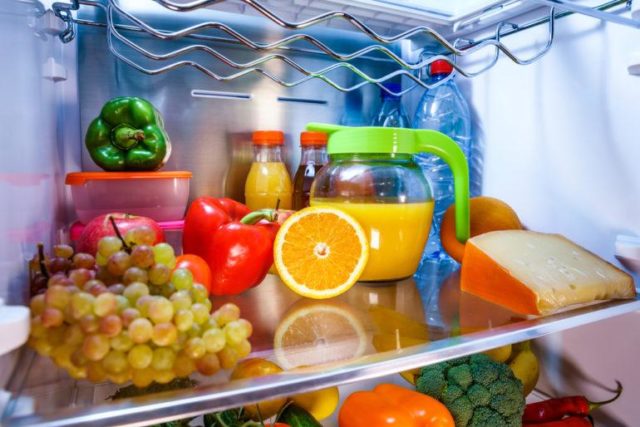 shutterstock
shutterstockAny citrus fruit should be kept out of the refrigerator. This is because they are highly acidic. Therefore, storing them in the refrigerator may harm them. When you keep whole oranges in the refrigerator they will develop spots and the peel will become dull. If this happens they won’t look appealing or taste appealing.
16. Pickles
You may be surprised that pickles should not be refrigerated. Though grocery stores act like they have to be, they don’t. Pickles are soaked in vinegar. This acts to preserve them. They are also covered in salt. Both the vinegar and the salt help keep them fresh.
 shutterstock
shutterstockMany types of food are actually pickled, such as beets. This is so they can survive outside of a refrigerator. The quality of the food won’t deteriorate.
17. Cucumbers
Like pickles, cucumbers do not need refrigeration. However, most people don’t realize this. Virtually every refrigerator has a crisper. We are led to believe all vegetables should be stored in there. However, this is not true. Cucumber skin is very thin. While this makes it easy to peel, it makes it difficult to preserve. Excessive exposure to cold air harms cucumber skin.
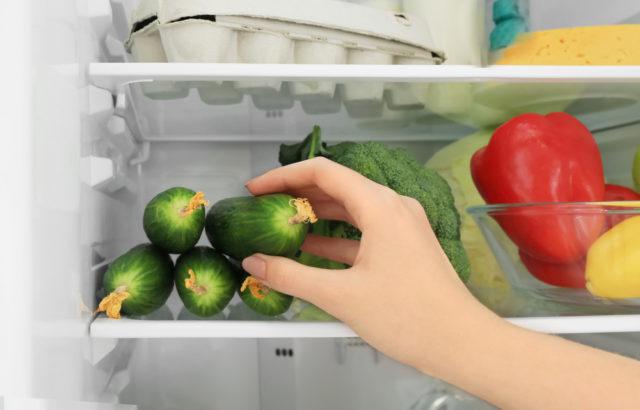 shutterstock
shutterstockWhile cucumbers need to be kept cool, cold temperatures are bad for them. Ideally, you should find a cool spot outside your refrigerator. This is where cucumbers belong. Ideally, cucumbers can’t handle refrigeration or room temperatures. The best temperature at which to keep cucumbers is 55 degrees. Stored at this temperature, they will last approximately one week.
18. Soy Sauce
In most cases, soy sauce does not need to be refrigerated. On its own, this sauce is extremely salty. The salt preserves its flavor and quality over time. The fermentation of soy sauce is what keeps it fresh.
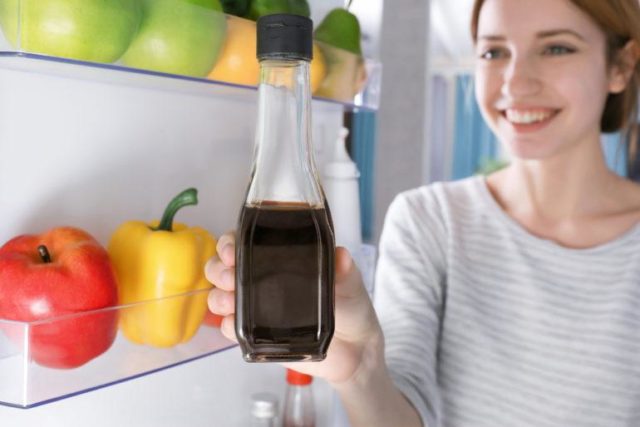 shutterstock
shutterstockIf you must refrigerate your soy sauce, it is best to use a low sodium version. Lower sodium means less salt. This means low sodium soy sauce can be refrigerated safely.
19. Fresh Breads
There are very few fresh breads that can safely be refrigerated. Bread needs to stay soft; which means the moisture needs to stay in it. Refrigerating most types of bread results in it becoming stale quickly.
 shutterstock
shutterstockExperts recommend that bread should only be in the refrigerator if you intend to use it for sandwiches.
20. Fresh Herbs
Fresh herbs are a great food to keep in your kitchen. However, the refrigerator is the absolute last place they should be. Herbs are very susceptible to the surrounding scents. If you keep them in your refrigerator they may end up smelling like other foods, making them undesirable.
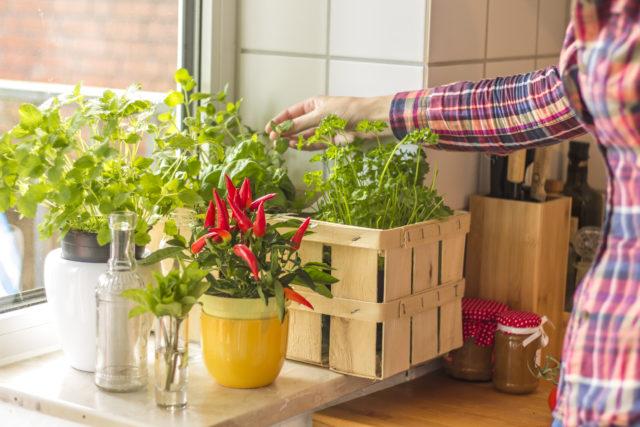 twenty20
twenty20Another reason to keep them out of there is that refrigeration can dull their flavor. In some cases, it may take it away all together. Herbs are naturally moist, making the refrigerator the worst place to put them. They will dry out if they are exposed to cold air for too long.
21. Nuts
Any type of nuts should be kept out of the refrigerator. All of them naturally contain oil. Cold temperatures work to preserve this oil in nuts. However, it takes away from the flavor.
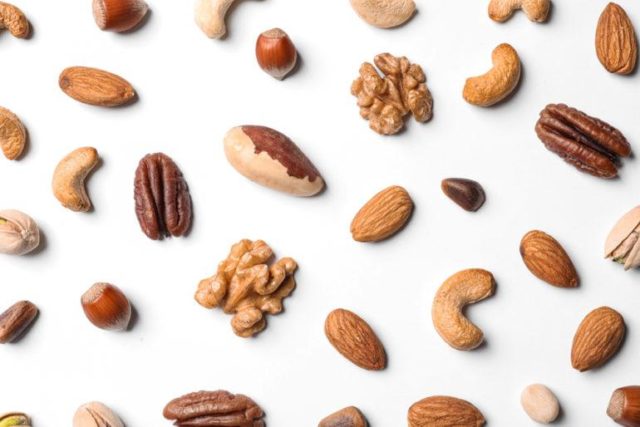 shutterstock
shutterstockIf you enjoy various nuts for this reason, refrigerating them isn’t recommended. They won’t have the same effect when you use them in recipes. Keeping them in the refrigerator will make the nuts smell like other foods.
22. Butter
Depending on how long you take to use a stick of butter, it shouldn’t always be refrigerated. According to the USDA, refrigeration isn’t always necessary. 80% of any butter is made up of fat. Since it is only 20% water, refrigeration is not completely necessary. Most butters have pasteurized milk in them. This, combined with the water content, means bacteria won’t break down easily. Bacterial growth isn’t as likely, as a result. Keeping butter cold gives it a hard consistency. This is not something you want. Spreading hard butter on bread will rip the bread to pieces.
 twenty20
twenty20To get the most out of butter, you can store some of in the refrigerator. The rest can be left outside of it. Butter will also lose its creaminess if you keep it cold. The key is to use it before it spoils out of the refrigerator. The only exception is that unsalted better can’t be kept at room temperature. To avoid refrigerating your butter, use the salted version.
23. Cake
It isn’t always recommended (or necessary) to refrigerate cake. Keeping it in the refrigerator often makes it dry. Any cake without frosting doesn’t need refrigeration. This is also true if icing made of ganache or buttercream is used.
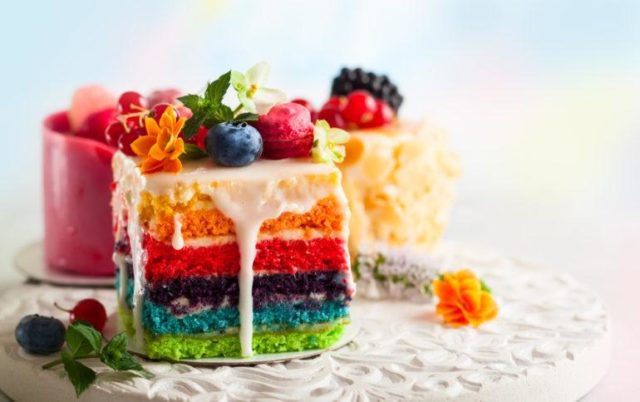 shutterstock
shutterstockHowever, freezing a cake is fine. Most couples freeze the top layer of their wedding cake for one year.
24. Canned Milk
Canned evaporated milk can be kept out of the refrigerator. In most cases, you can use it in recipes. It won’t fully take the place of regular milk. However, it can be a great substitute for the milk you would normally have to keep cold.
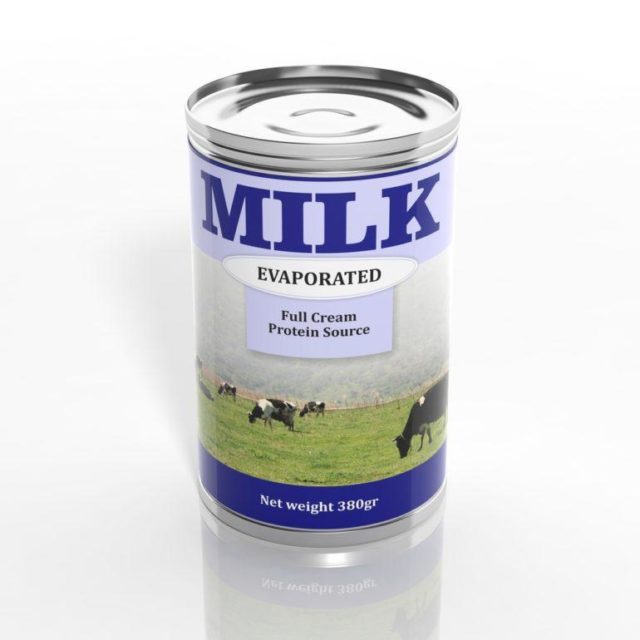 shutterstock
shutterstockSoy and powdered milk can also be kept at room temperature. Adding water to powdered milk will transform it. You may never use refrigerated milk again.
25. Fresh Basil
While certain herbs need refrigeration, fresh basil is not one of them. Basil has stems that are tender. They should be stored more like flowers than food.
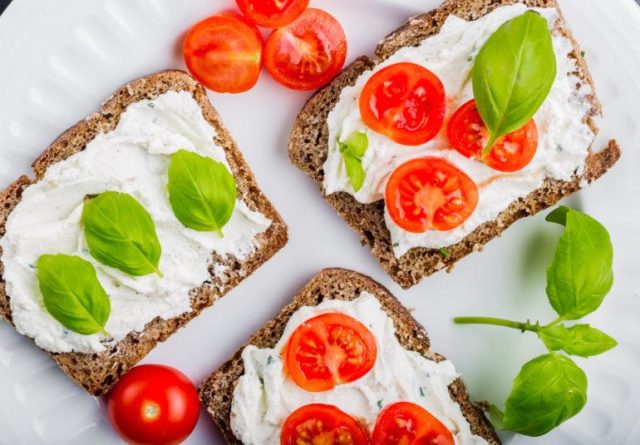 shutterstock
shutterstockTo keep basil fresh, put it in a small glass of water. When the water gets cloudy it should be replaced. This keeps it at room temperature but still prevents spoiling. Otherwise, it may end up wilting before you can eat it.
26. Peppers
No matter what kind of peppers you use, refrigeration is not necessary. Exposing any of them to it will prevent them from becoming ripe.
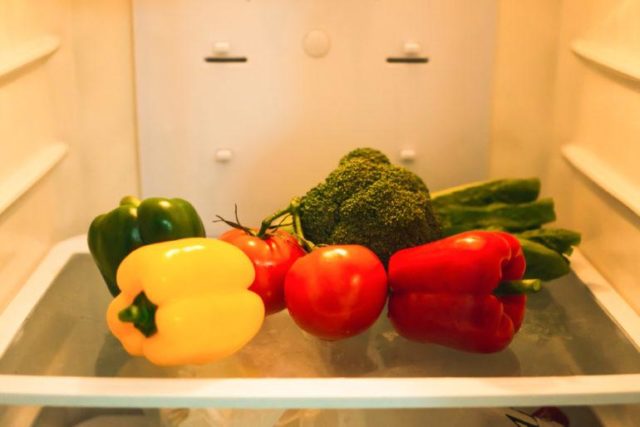 shutterstock
shutterstockYour peppers won’t be as fresh or flavorful if you refrigerate them. They need to be kept in a dry environment. It should also be one in which they have plenty of exposure to air.
27. Maple Syrup
Maple syrup never needs to be refrigerated. Its moisture prevents bacteria from growing inside it.
 shutterstock
shutterstockEven when you have opened a bottle of syrup, keep it on a counter. You will find that it tastes better and maintains its consistency.
28. Hot Sauce
Keeping hot sauce cold is not necessary. There is no reason to store it in the refrigerator. Hot sauce has a high acid content. This acid content helps preserve it. As a result, hot sauce never needs to be refrigerated.
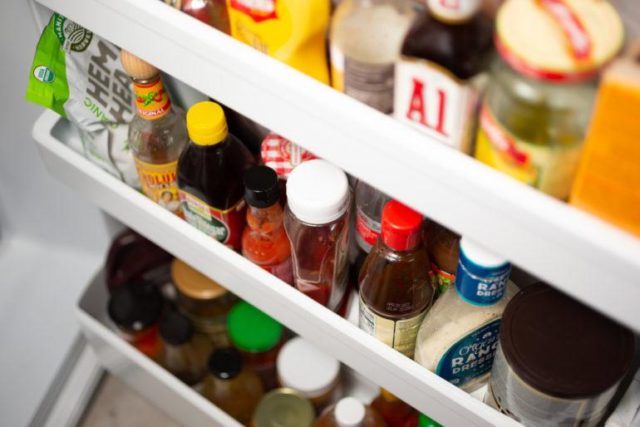 shutterstock
shutterstockThe vinegar found in hot sauce makes it ideal to keep on the kitchen counter. This also applies to fish sauces. These sauces can be kept out of the refrigerator for years. They will still maintain their quality and flavor.
29. Berries
In general, berries can be kept out of the refrigerator. The moisture content of a refrigerator is high. Exposing berries to this type of environment is not good for them.
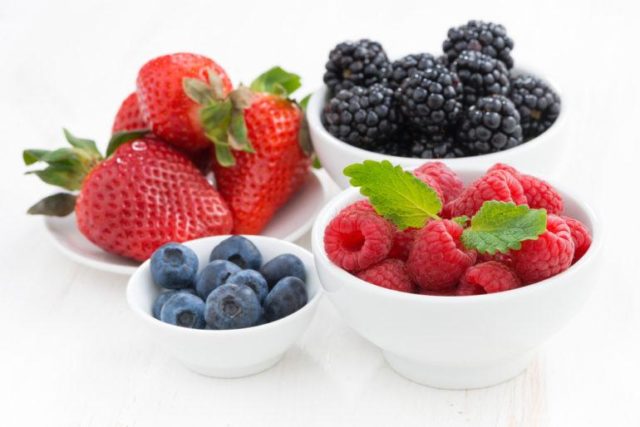 shutterstock
shutterstockWith so much water in them, berries can and do stay fresh in room temperature. Kept in the refrigerator too long, and they can end up frozen. When this happens, the quality of them will be compromised. Their texture will become undesirable. They will also lose their flavor. Berries are best kept on a counter or table in your kitchen.
30. Salad Dressing
With some exceptions, salad dressing does not need refrigeration. There are preservatives in most of them that keep them fresh. Chances are, almost every salad dressing you have can survive without cold. Oil and vinegar based salad dressings can be kept at room temperature.
 shutterstock
shutterstockThe only time that you have to keep salad dressing in the refrigerator is if it is mayonnaise, yogurt or cream based. Otherwise, free up room in your refrigerator. Instead, keep salad dressings in a cabinet or pantry.
31. Jam/Jelly
Jams and jelly do not need to be refrigerated. The ingredients in them keep them fresh on their own. They will last awhile at room temperature.
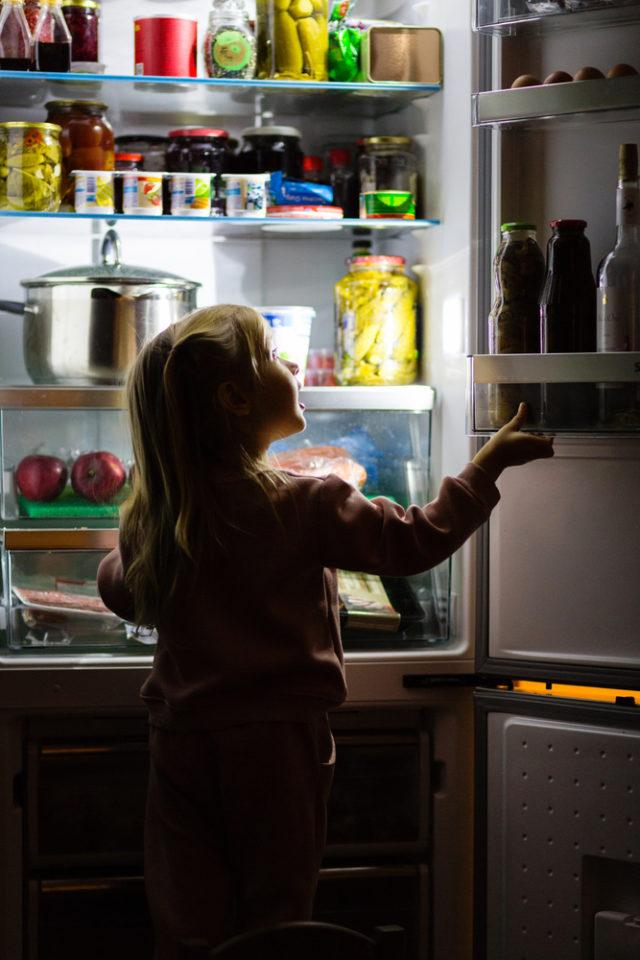 shutterstock
shutterstockKeeping them out of the refrigerator also makes them easier to spread. Once you have opened a jar of jelly or jam keeping it in a cabinet is acceptable.
32. Winter Squashes
Winter squashes can easily be kept out of the refrigerator. All of them contain high amounts of Vitamin C and Vitamin A. As a result, room temperature will not hurt them. Without refrigerating your winter squashes, they will last.
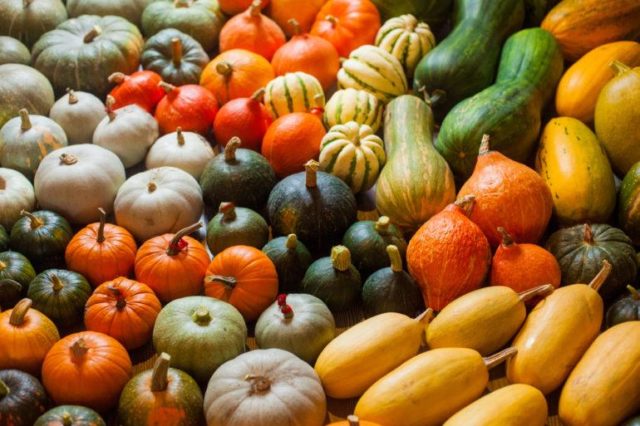 shutterstock
shutterstockYou will have approximately one month to use them without refrigerating them. In some cases, they will last even longer than that. All types of squashes have a long enough shelf life.
33. Plums
Plums do not fare well in cold temperatures. Like many other fruits, they will get wrinkled. Keeping plums in the refrigerator prevents them from ripening. This makes them undesirable to eat. Their flavor will be compromised if they are kept refrigerated.
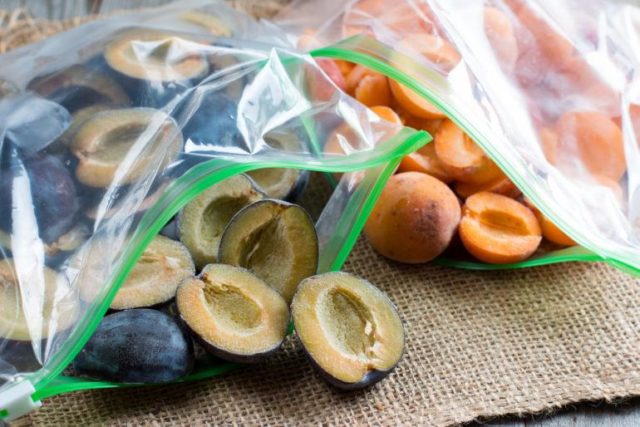 shutterstock
shutterstockTo keep your plums fresh, they should be kept on a shelf. When you keep them there, you can enjoy them for much longer.
34. Pumpkin
Now, it may seem odd to have an entire pumpkin sitting around the house and you may think it will do better in the fridge. However, that is not the case if you put a pumpkin in the fridge it actually leads to the pumpkin going bad faster than what you think.
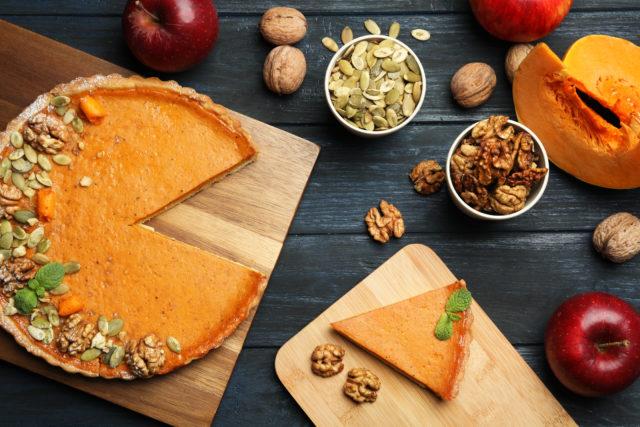 shutterstock
shutterstockSomething else with the pumpkins that cannot really cause a problem is if the pumpkin is put in the fridge whole it can start to get very chewy and difficult to eat.
35. Kiwi
A Kiwi is a great tropical food that a lot of people tend to enjoy eating. However, some people think that leaving them sitting on the countertop is not going to be appealing or even the proper way to store the kiwi.
 shutterstock
shutterstockHowever, putting a kiwi in the fridge will actually lead to the kiwi rotting faster.
36. Peaches
Not all of the food that you put in the fridge will need to go in to stay good. In fact, peaches are one food that if they are placed in the refrigerator have a tendency to have some problems with their taste.
 shutterstock
shutterstockThe peaches tend to become more mealy and tend to lose their flavor.
37. Mangoes
Mangoes are a food that if stored in the fridge tends to spoil really fast. When you have the mangoes on the counter you can protect them with a jar that has airflow.
 shutterstock
shutterstockHowever, it is very important for you to check on your fruits every couple of days to guarantee they are not spoiling.
38. Carrots
While you may see carrots being stored in the refrigerator all the time this is not really needed. Carrots are a root vegetable and often can be stored outside of the refrigerator.
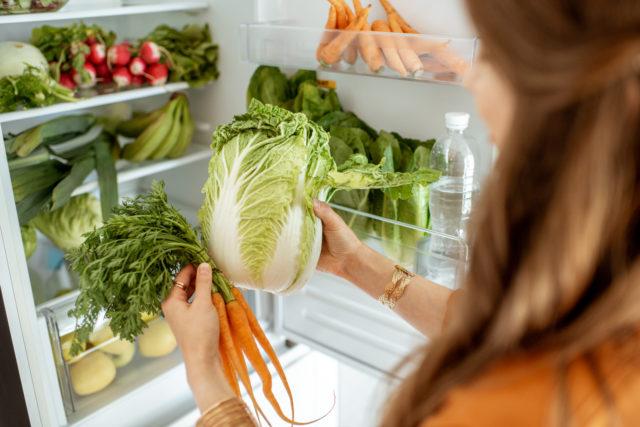 shutterstock
shutterstockWhen they are stored in the fridge the carrots may go bad faster as the carrots do not like being stored with other vegetables and really do not like ethylene producing fruits and vegetables.
39. Beef Jerky
Beef jerky is an item that is often cured as beef and dried out. While it may seem like it would need to be refrigerated because of it being a meat product.
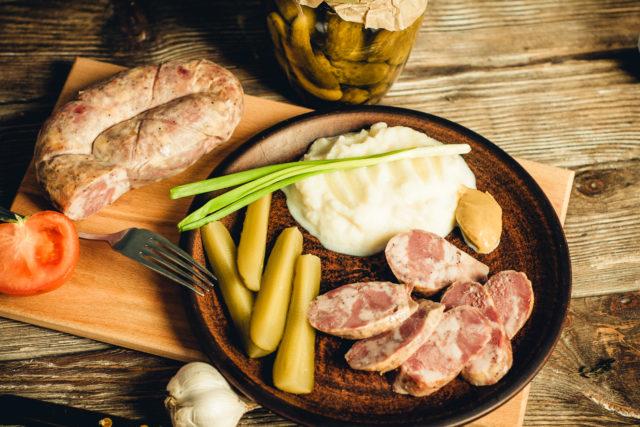 shutterstock
shutterstockWhen it is dehydrated the food tends to be quite a bit better and is sealed in a vacuum container. As long as it is stored in a dark and dry location, it lasts for a long period of time.
40. Salad
Salad is one food that may seem like it would fit perfect for the refrigerator, but the sad fact is one everything is combined to make the salad amazing, the foods do not mesh well when stored.
 shutterstock
shutterstockTomatoes tend to have their juice run all over the lettuce and salad dressing as well. In all, those factors along with several other lead to the salad turning mushy and into a bacteria factory.
41. Pears
Pears need to have the warmth of the room air to ripen. However, at the same time the pears, if placed in the refrigerator, delay the ripening process, but do not stop it.
 shutterstock
shutterstockThen by the time you remember the pear, it is a pile of mush in the corner.
42. Canned Tuna
Canned tuna is never a great item to put in the refrigerator. Once the tuna is out of the can it needs to be refrigerated as quickly as possible in a glass container.
 shutterstock
shutterstockThe cans if placed in the refrigerator can bulge or rust. Both of which can impact the quality of the food.
43. Tropical Fruits
Tropical fruits tend to get put in the refrigerator and that is a major mistake.
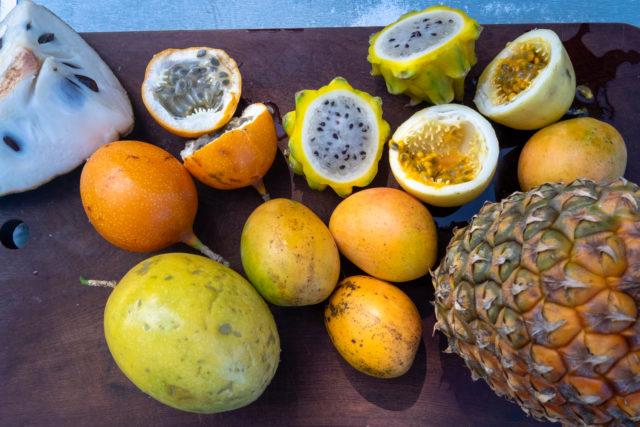 shutterstock
shutterstockWhen the tropical fruits are put into the refrigerator they tend to go bad quickly from the excess amounts of moisture in the refrigerator, but also tend to put off quite a bit of ethylene gas that can lead to your other food items going bad.
44. Yogurt
The yogurt that you buy often needs to be refrigerated to keep the bacteria from growing in the yogurt. However, what you need to realize is yogurt can be left out for a couple of hours at a time and still be safe to eat.
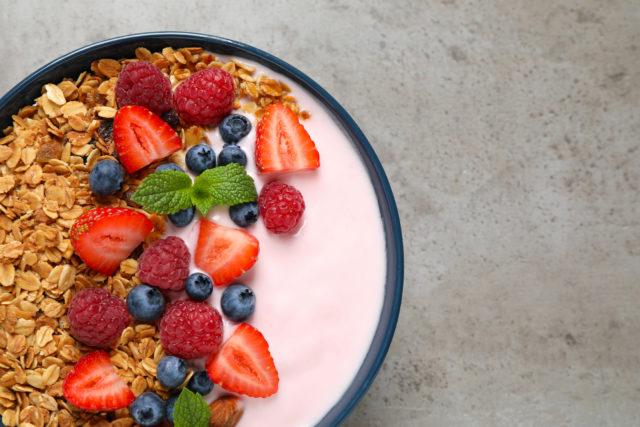 shutterstock
shutterstockAfter that, you may need to consider other problems that could be happening with the yogurt you have on the counter.
45. Spices
Some of the spices can go in the refrigerator. However, not all of them are going to be doing good in the refrigerator.
 shutterstock
shutterstockSo you need to check the spices as the moisture in the fridge and the smells can start to affect the way the spices work on the food.
46. Apples
Okay, apples are one food item that you can put into the refrigerator, but you do not really need to!
 shutterstock
shutterstockJust like pears, the apples tend to get soft and mushy if you put them in the refrigerator. Not to mention, the apples tend to go bad faster when put in the refrigerator.
47. Cereal
Cereal is a grain product and when you start to put grains in the refrigerator it can lead to the cereal starting to go rancid.
 shutterstock
shutterstockNow, this is not always the case, but when put into the cereals are put into the fridge they can get soggy and pick up the taste of other foods.
48. Butternut Squash
A squash may not seem like it would be sensitive to a lot of the issues that are found with some of the other foods. However, the butternut squash is one food that you have to keep your eye on.
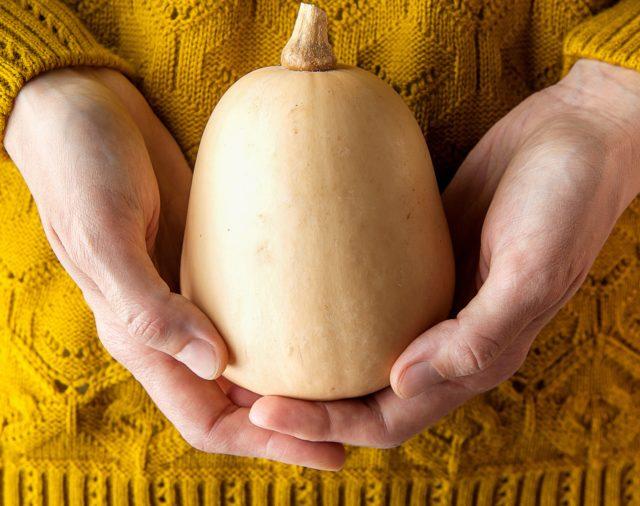 twenty20
twenty20It is very sensitive to the moisture that you can find in the refrigerator. Even a little bit of moisture can start to get the outer shell of the butternut squash broken down and turn it into mush rather quickly.
49. Cheese
Cheese is a great item that is a favorite snack for a lot of people. However, the cheese has a tendency to be a food that people refrigerate and not realize they do not need to refrigerate.
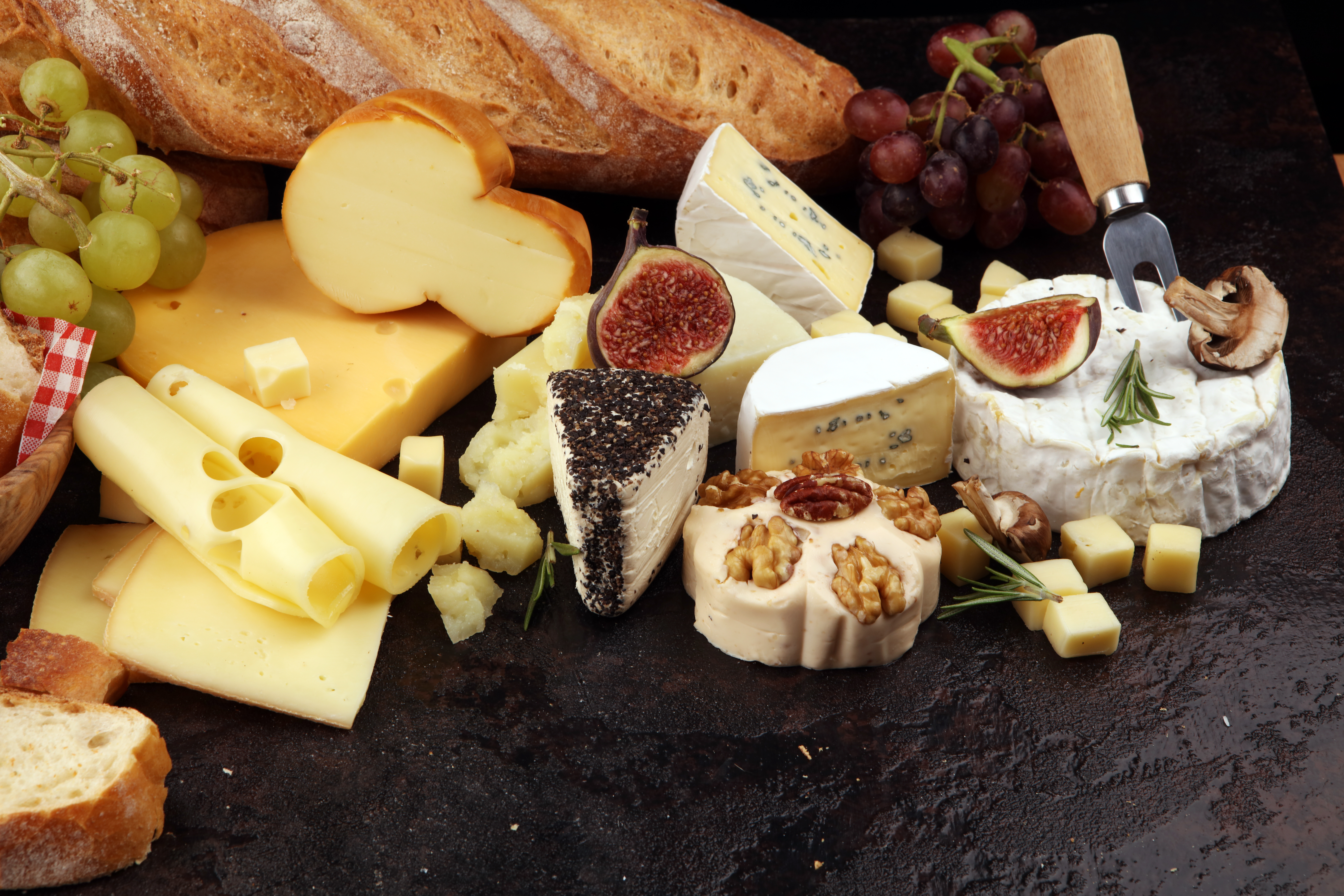 shutterstock
shutterstockWhen put in the refrigerator cheese tends to get a different taste and flavor profile compared to what people may be used to eating.
50. Pineapple
Pineapple is a fruit that a lot of people tend to pop in the refrigerator once they get back home. However, the pineapple does produce ethylene and that makes the food go bad faster than what you imagined.
 shutterstock
shutterstockAt the same time, the refrigerator does slow the process, but it does not stop the process completely and that makes a big difference in how well the quality of the pineapple. With the pineapple, you need to realize the color can change in the refrigeration process as well.
51. Papaya
When you have papaya the food is going to really have a harder time reaching the peak eating point by being put in the refrigerator.
 shutterstock
shutterstockWhen you do not have the papaya in the refrigerator it tends to ripen properly and over time. This allows you to get the full juicy and good tasting papaya that you want to have on the table at your next meal.
52. Green Beans
Green Beans are often going to be a food that you pop into the refrigerator, which is good. At the same time, though, you may notice you have to keep the green beans properly protected from the different chemicals and other items that are inside of the refrigerator.
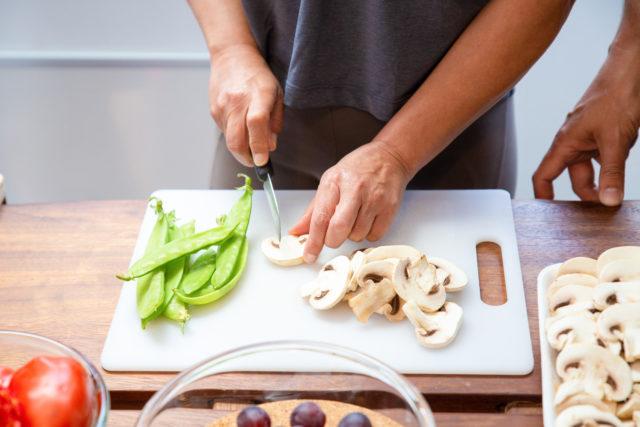 shutterstock
shutterstockIf you do not do that then you could end up with the refrigerator causing your beans to go bad faster than what you thought. What else can happen is when the beans are stored in the refrigerator they can get excessive amounts of moisture.
53. Donuts
Donuts are a food that generally does not need to be put into the refrigerat53. or. By putting these in the refrigerator you may notice that the excessive moisture in the refrigerator makes your donuts really soggy.
 twenty20
twenty20When these are soggy they tend to taste quite a bit worse than what you think, but also get so soggy that you cannot really eat the donuts without your hand going through them.
54. Sweet Potato
The sweet potatoes definitely should not go into the refrigerator. The sweet potatoes are going to tend to have a change in how the cells look when they are placed in the refrigerator and this often means the cells are completely changed and lead to them getting hard in the middle, but also they tend to get the horrible looking white spots.
 twenty20
twenty20While the white spots do not impact the taste of the food, it will be unsightly and make it easier for you to think that the sweet potatoes have went bad well before you get to the point of eating them.
55. Flour
Flour is one item that has been all over the place on the storage method. Some people recommend the freezer or the refrigerator to extend life.
 shutterstock
shutterstockHowever, if the flour is stored in either one of these locations when the flour is pulled out it can have a tendency to have moisture issues if it is not stored properly or if the lid gets knocked off the air tight container.
56. Eggs
Eggs are an item that in the United States are required by law to be kept in the refrigerator to keep the growth of bacteria down.
 twenty20
twenty20However, if the eggs are left out the eggs that have already been in the refrigerator tend to sweat and grow bacteria. If the eggs are not washed and not placed in the refrigerator the egg tends to have a membrane that prevents bacteria from spreading to people.
57. Chocolate Hazelnut Spread
Chocolate Hazelnut Spread is definitely a food that you should never put in the refrigerator. This is a food that if you put it into the refrigerator has a tendency to get very hard and cannot be used.
 shutterstock
shutterstockNot to mention if you do put the spread into the refrigerator it has a tendency to pick up some of the contaminants that are in the refrigerator.
58. Dried fruit
Dried fruit is something that you may consider putting in the refrigerator, but you need to realize the dried fruit can pick up the contaminants from the refrigerator.
 twenty20
twenty20At the same time, the dried fruit can start to sweat, and this can lead to them starting to grow bacteria and get chewy compared to what you were expecting.
59. Mint
Mint is a food item that can be stored in the refrigerator, but it tends to do better stored outside of the fridge as dried leaves. The mint leaves can even get wet and soppy if they are stored in the refrigerator improperly. This often comes from the fact that the mint starts to get the excessive amounts of moisture inside of the bags and can start to become impossible for you to keep fresh.
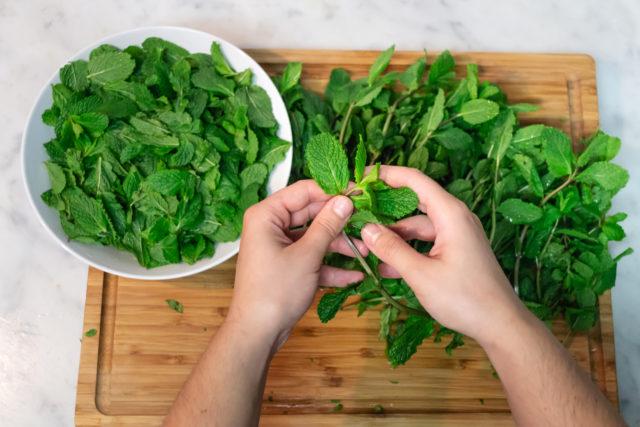 shutterstock
shutterstockNow, if you do insist on using the refrigerator for the mint, you can put the bags in the refrigerator and keep it protected with some paper towels that you have to change from time to time.
60. Tabasco
With Tabasco, a lot of people think that it has to be refrigerated once it is open. However, this is not the case, and it only slows down the process of Tabasco going bad.
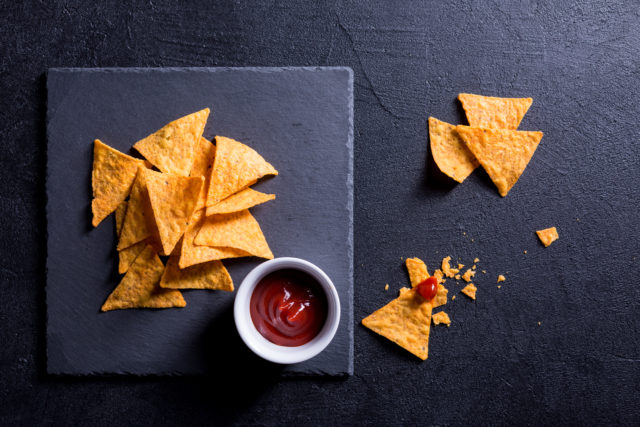 shutterstock
shutterstockAt the same time, though, you will notice that if Tabasco is refrigerated, it can impact the color and even to a certain extent, the taste of the sauce and not be ready to put on your food.
61. Rice
Rice absorbs moisture naturally, and you know hat the rice is going to be exposed to in the refrigerator? Well, the short answer is the rice will be exposed to excessive amounts of moisture!
 twenty20
twenty20This can easily lead to the rice getting to be unusable and to the point that you are not able to use the rice. At the same time, though, you need to make sure that the rice can pick up the smells and even the taste of the other foods that are inside of the refrigerator.
62. Salami
Salami is already a dry food and one that can be impacted negatively by the dry environment in the refrigerator. At the same time, though, make sure that if you do put the salami in the fridge, you are going to want to store it in pieces of parchment paper or even wax paper, which will help to keep the salami from drying out.
 shutterstock
shutterstockIf the salami is stored in the refrigerator without these packages, then you will have the problem of the fact that the salami can start to get drier than expected and chewy as well.
63. Canned Olives
Olives are going to have a great shelf life on their own! You have to follow the proper storage directions, and then it will be easier for you to keep the olives fresh.
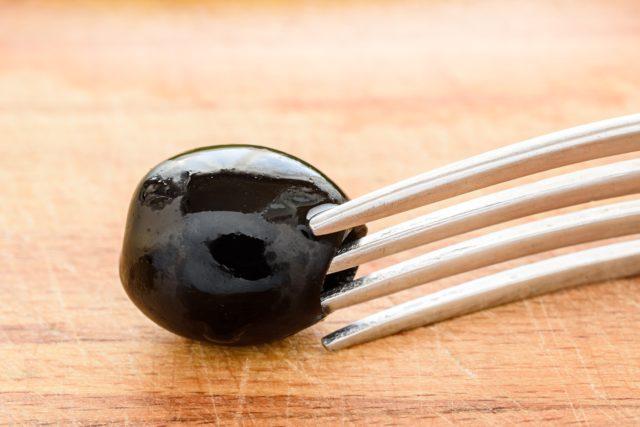 twenty20
twenty20All that you have to do is make sure that you have the olives packed in the brine to help keep the food clean, and then it will last for up to 6 months without being in the refrigerator.
64. Potato Chips
Potato Chips are meant to be crisp to give you the great taste that you want to have. However, the chips are going to be impacted by the refrigerator and can have the extra moisture that makes it easier for you to get the soggy fries.
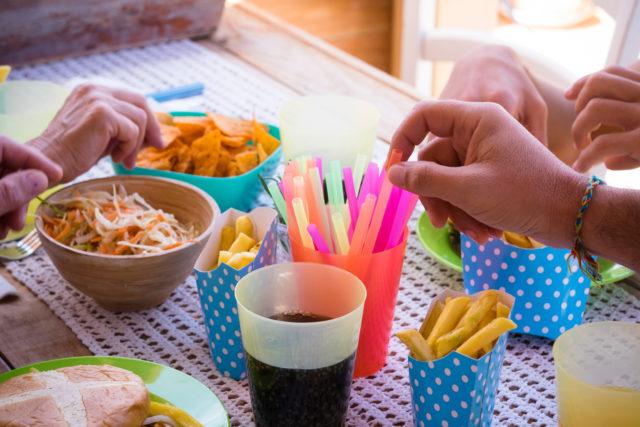 shutterstock
shutterstockNot to mention, the potato chips, when you are storing them in the refrigerator is going to start to pick up some of the taste and flavors of the food that is in the refrigerator.
65. Dry Crackers
Just like the potato chips, you will notice the crackers are supposed to be dry and crisp. At the same time, though, the crackers can start to pick up a lot of the taste and textures of the food that you have in the refrigerator already.
 shutterstock
shutterstockNot to mention, if you do store the crackers in the fridge, it could have some problems by needing to use an airtight container.
66. UHT Cow Milk
The UHT cow milk is ultra-pasteurized. This means that the milk is going to be heated to a temperature that kills all of the bacteria that are in the milk. By getting the ultra-pasteurized dairy, you do not have to worry about bacteria.
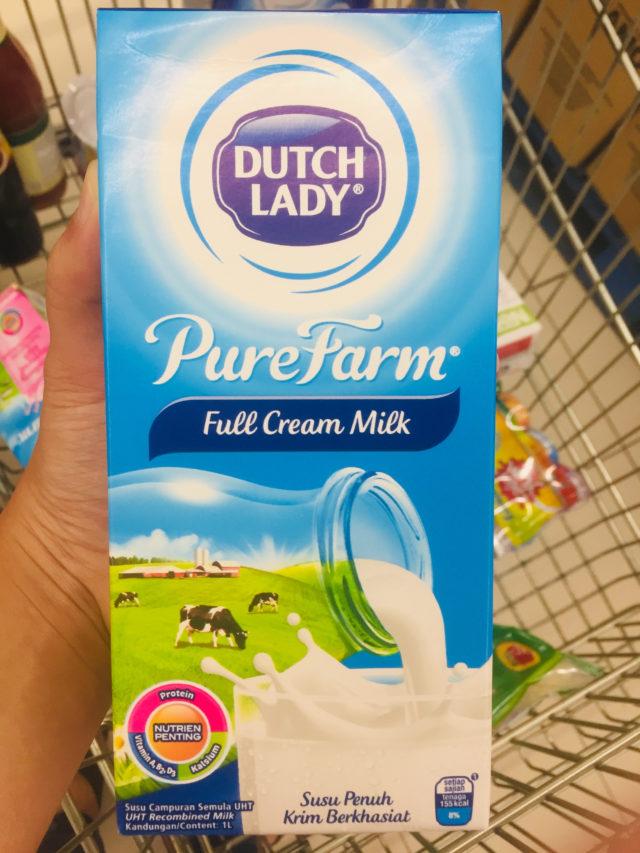 shutterstock
shutterstockThis makes it easier for you to get the milk on the counter and not have to worry about the milk getting put into the refrigerator and taking up any of the extra space that you may not have available in the fridge.
67. Molasses
Molasses is one food that you do not want to put into the refrigerator. If you put this into the fridge, you will notice that the next time you go to use it that you are going to have to wait for hours on end for the molasses to be ready to use.
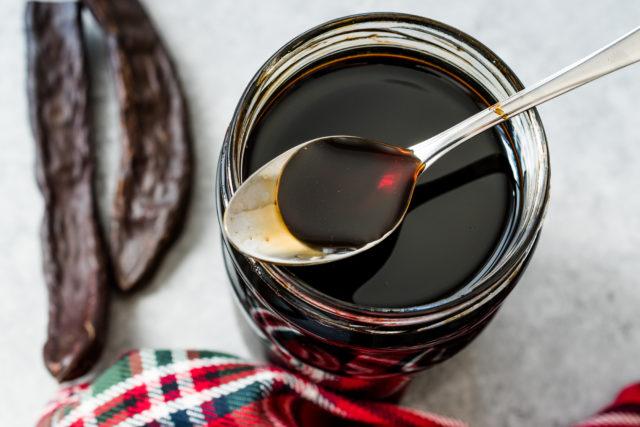 shutterstock
shutterstockAt the same time, though, you may notice that the molasses when being left out of the refrigerator does not go wrong as sugar tends to be very resistant to the growth of bacteria.
68. Fried Foods
Fried Foods are going to be an item that you do not want to put into the refrigerator. When you are putting these into the fridge, you will notice that the food tends to get hard and often gets to the point that you cannot eat them.
 twenty20
twenty20At the same time, when you are getting the fried foods in the refrigerator, you may notice that when you are reheating them food because of the very nature of the food, it tends to get soggy.
69. Gravy
A lot of times gravy is made from a variety of different methods. Since this is the case, you need to realize that if you have the gravy in the refrigerator, it can start to store differently than what you were expecting. At the same time, though, you could find that the gravy tends to solidify when it is put into the refrigerator, and that definitely will be an issue when you go to use the gravy the next time.
 twenty20
twenty20What else is a problem for the gravy is the fact that some of the foods that you use to put the gravy together can start to go bad faster than what the other foods do, and that means you have to get rid of the entire gravy pack.
70. Grapes
Grapes can be a food that you tend to think needs to go into the refrigerator because they are often stored in the refrigerator units at the grocery store.
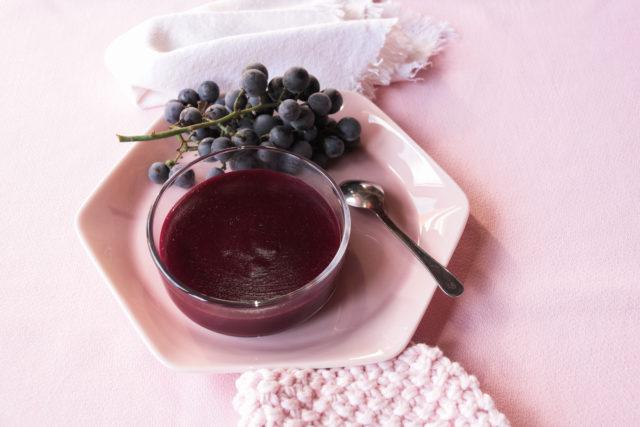 shutterstock
shutterstockThese can last a little bit longer in the fridge, but at the same time the grapes can tend to grow some mold, and that can be a downer if you are hungry for grapes and go to the refrigerator only to reach into the bag and pull out a big bag of moldy grapes.
71. Champagne
Champagne is going to be something that you need to consider keeping out of the refrigerator. The champagne is going to have the cork inside of it to help keep it fresh and ready to drink.
 shutterstock
shutterstockWhen the champagne is put in the refrigerator, you can have the cork start to dry out. When the cork dries out, it tends to lose its seal, and that allows the different chemicals and compounds that are in the refrigerator to affect the taste of the champagne.
72. Mature White Wines
White wines are straightforward to store in most cases. As long as you have a storage area that is cool and dark, then the white wine is fine being stored outside of the refrigerator. However, if you want to have the wine chilled for the next meal you are planning with guests, then you can put it in the refrigerator only a couple of days before the big day.
 shutterstock
shutterstockIf you do put the white wines in the refrigerator, then you should consider the refrigerators that are meant specifically for the wines, and that will keep the wine good for several months.
73. Mustard
Mustard is a very acidic food, and it is one that a lot of people tend to put into the refrigerator. However, the thing that you need to realize is the mustard has a shallow acid content, and that is going to keep the mustard good for several months on the shelf.
 shutterstock
shutterstockThen you do not have to put the mustard in the refrigerator, and you do not even have to worry about the mustard going bad on you when it is on the shelf for several months.
More Space In Your Fridge
The refrigerator is a storage unit that a lot of people use all the time. However, what you need to realize is the fridge is good for some foods, but not all of the foods. That is when you should look at the different foods that are not needed to be put in the refrigerator. By knowing about these foods, it will be very easy for you to have the food stored and not take up a lot of the refrigerator space.

It is essential to know which foods shouldn’t be refrigerated and why. You will also find that you have more space in your fridge. Keeping certain foods on the counter or in a pantry will make a difference.